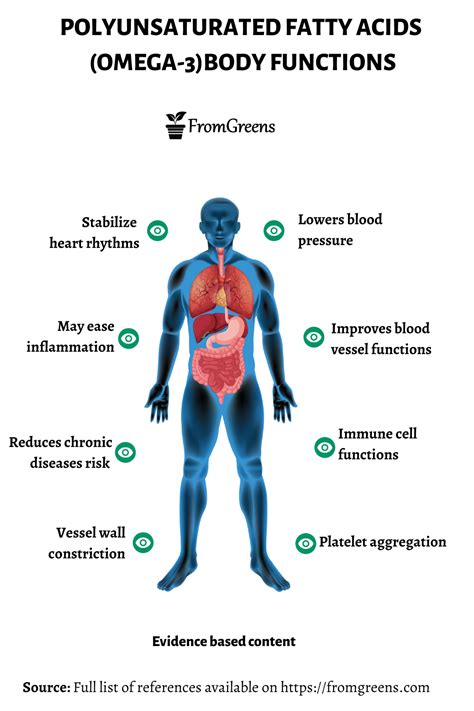omega 3 function in the body|is omega 3 good for you : 2024-10-07 Sardines are very small oily fish commonly eaten as appetizers, snacks, or . The Audemars Piguet Royal Oak Offshore collection has defied conventions since .
0 · 其他
1 · omega 3s daily benefits
2 · omega 3 supplements benefits
3 · omega 3 nutrition facts
4 · omega 3 fatty acids benefits
5 · omega 3 benefits and side effects
6 · omega 3 benefits
7 · is omega 3 good for you
8 · does omega 3 really work
7 nov. 2009 — if you poll 20 AP owners and 20 Hublot owners, you will get two sets of answers. Also, bear in mind, there is alot of cross over. There are AP owners who have .
omega 3 function in the body*******Omega-3 fatty acids have been linked to many health benefits. In particular, they may help promote brain and heart health, reduce inflammation, and protect against several chronic conditions .

Many omega-3 supplements often contain little, if any, EPA and DHA — the most .is omega 3 good for youOmega-3 fatty acids, particularly EPA and DHA, have anti-inflammatory effects. So, .Because cirrhosis can impair your immune function, it’s also best to avoid raw or .
Sardines are very small oily fish commonly eaten as appetizers, snacks, or .omega 3 function in the bodyOmega-3 fatty acids are very good for your health, but it can be hard to get enough if .If you live with ADHD, you know that it's a complex condition. Learn about causes .If you have metabolic syndrome, diet can help reduce your risk for certain diseases .Omega-3 fatty acids These essential fats are important to neurological .What makes omega-3 fats special? They are needed to build cell membranes throughout the body and affect the function of the cell receptors in these membranes. They also .Omega-3 fatty acids help all the cells in your body function as they should. They’re a vital part of your cell membranes, helping to provide structure and supporting interactions .Best known for heart and brain health, omega-3s do lots of great things for your body, like keeping your immune system strong and supporting visual, hormonal and reproductive .Omega-3 fatty acids are essential nutrients consumed through foods or supplements. There are three types of omega-3s; DHA, EPA, and ALA. Potential health benefits of omega-3s .Omega-3 fatty acids are a group of three important types of fat: ALA, DHA, and EPA. Getting enough of each type may help keep your retinas, brain, and other parts of your body in .
Omega-3 fatty acids are good for your body. These healthy fats may help keep your heart healthy, protect against stroke, and offer other benefits for your health. In fact, the .Protective cardiac effect of EFAs are related to BP, arterial compliance, improved lipid metabolism and anti-inflammatory properties. Although consumption of omega-3 is .
Omega-3 (ω-3) fatty acids, renowned for their multiple health benefits, are pivotal in managing hyperlipidemia by modulating lipid profiles. This comprehensive activity .
Omega-3 fatty acids are a group of polyunsaturated fatty acids that are important for a number of functions in the body. The omega-3 fatty acids EPA and DHA are found in .
Bottom line. Omega-3 fats are essential fats that have important benefits for your heart, brain, and metabolism. While omega-6 fats provide your body with energy, they are abundant in our diet .Linoleic acid (C18:2n-6) and arachidonic acid (C20:4n-6) are two of the major omega-6s. The human body can only form carbon–carbon double bonds after the ninth carbon from the methyl end . have assessed the effects of omega-3 supplementation on cognitive function and dementia in healthy older adults and those with Alzheimer's disease or .
5. May support healthy skin. Your skin is the largest organ in your body, and it contains a lot of omega-3 fatty acids. Fish oil supplements may be beneficia l in a number of skin disorders .Omega-3s are important components of the membranes that surround each cell in your body. DHA levels are especially high in retina (eye), brain, and sperm cells. Omega-3s also provide calories to give your body energy and have many functions in your heart, blood vessels , lungs , immune system , and endocrine system (the network of hormone . The increase in fat oxidation and energy needs by changes in body composition is thought to be another mechanism by which omega-3 fatty acids help lower the triglyceride levels in the blood. . Alzheimer disease, dementia, and cognitive function are improved by omega-3 fatty acids' ability to maintain cell membranes of neural . Omega-3 fatty acids are a group of polyunsaturated fatty acids that are important for a number of functions in the body. The omega-3 fatty acids EPA and DHA are found in seafood, such as fatty fish (e.g., salmon, tuna, and trout) and shellfish (e.g., crab, mussels, and oysters). A different kind of omega-3, called ALA, is found in other . Harvard Heart Letter. Omega-3 fatty acids from fish and fish oil have been recommended by the American Heart Association for the past 20 years to reduce cardiovascular events in people who already have cardiovascular disease. But the results of studies of omega-3 supplements have been mixed, leaving both doctors and patients .Linoleic acid (C18:2n-6) and arachidonic acid (C20:4n-6) are two of the major omega-6s. The human body can only form carbon–carbon double bonds after the ninth carbon from the methyl end . have assessed the effects of omega-3 supplementation on cognitive function and dementia in healthy older adults and those with Alzheimer's disease or .
Linoleic acid (C18:2n-6) and arachidonic acid (C20:4n-6) are two of the major omega-6s. The human body can only form carbon–carbon double bonds after the ninth carbon from the methyl end . have assessed the effects of omega-3 supplementation on cognitive function and dementia in healthy older adults and those with Alzheimer's disease or .
Linoleic acid (C18:2n-6) and arachidonic acid (C20:4n-6) are two of the major omega-6s. The human body can only form carbon–carbon double bonds after the ninth carbon from the methyl end . have assessed the effects of omega-3 supplementation on cognitive function and dementia in healthy older adults and those with Alzheimer's . Omega-3 fatty acids are an important part of a person’s nutrition and contribute to the basic health of all cells in the body. Most people get enough omega-3 fatty acids in their diet to achieve .

Less extensive investigation has been performed on the effects of omega-3 fatty acids on other immune cells besides macrophages, neutrophils, T cells, and B cells. In the following section, we summarize the main findings regarding the alterations on other immune cells functions caused by omega-3 fatty acids. 6.1. Omega-3 in the Body. Omega-3 plays an integral role in cells throughout your body, especially on receptors in cell membranes. . and have a vast number of management functions throughout the body. They help regulate all cell signaling, boast the highest concentration of energy, and make up nearly 15% of red blood cell membranes. Although the body can convert ALA (plant-based omega-3) to DHA and EPA in small quantities, dietary intake and sometimes supplementation are needed. Omega-3s help with various functions in your heart, lungs, immune system, and endocrine system, as well as in hormone production.
Omega-3 fatty acids are an important part of a person’s nutrition and contribute to the basic health of all cells in the body. Most people get enough omega-3 fatty acids in their diet to achieve . Less extensive investigation has been performed on the effects of omega-3 fatty acids on other immune cells besides macrophages, neutrophils, T cells, and B cells. In the following section, we summarize the main findings regarding the alterations on other immune cells functions caused by omega-3 fatty acids. 6.1. Omega-3 in the Body. Omega-3 plays an integral role in cells throughout your body, especially on receptors in cell membranes. . and have a vast number of management functions throughout the body. They help regulate all cell signaling, boast the highest concentration of energy, and make up nearly 15% of red blood cell membranes. Although the body can convert ALA (plant-based omega-3) to DHA and EPA in small quantities, dietary intake and sometimes supplementation are needed. Omega-3s help with various functions in your heart, lungs, immune system, and endocrine system, as well as in hormone production.Linoleic acid (C18:2n-6) and arachidonic acid (C20:4n-6) are two of the major omega-6s. The human body can only form carbon–carbon double bonds after the ninth carbon from the methyl end . have assessed the effects of omega-3 supplementation on cognitive function and dementia in healthy older adults and those with Alzheimer's disease or .omega 3 function in the body is omega 3 good for you Following consumption, omega-3 fatty acids are incorporated into cell membranes in all tissues of the body (Figure 2).Whether the source of these omega-3 fatty acids is fish, fish-oil supplements or food products fortified with the appropriate omega-3 fatty acids, measurable changes in cellular membrane content occur within days of .
Omega-3 fatty acids play important roles in the body, such as regulating inflammation, supporting healthy neurological function, and providing structure to cells. Oxidative Metabolism of n-3 and n-6 PUFAs into Potent Lipid Mediators and Their Opposing Metabolic Functions. Omega-3 and Omega-6 PUFAs play an important role in the composition of all cell membrane PLs where they maintain homeostasis for correct membrane protein function and influence membrane fluidity and regulation of .
Alpha-linolenic acid (ALA) is an essential omega-3 fatty acid found in nuts such as walnuts. It is necessary for normal human growth and development. . 1.3 grams should be consumed daily . Omega-3, -6, and -9 fatty acids are types of polyunsaturated fats. The names come from their chemical structure; the number indicates where the final double bond is in the fatty acid chain. From a health perspective, however, it is important to know that the various types of fatty acids have different functions and effects on the human . The brain matter is 60% fat, and especially needs Omega-3 fatty acids to function properly. 5. Enhance the production of hormones, including testosterone. LACK OF OMEGA-3. For the full functioning of the body, it is important to consume at least 0.65 grams of omega per day. Factors that provoke a lack of essential triglycerides in the body: DHA is the most abundant omega-3 in your brain and plays a critical role in its development and function. Brain levels of other omega-3 fatty acids , such as EPA, are typically 250–300 times .
This dual-time watch from the exclusive Jules Audemars line pays homage to that tradition. This ref. 25685BA sports a beautiful stepped 18k yellow gold case. Despite its .
omega 3 function in the body|is omega 3 good for you






